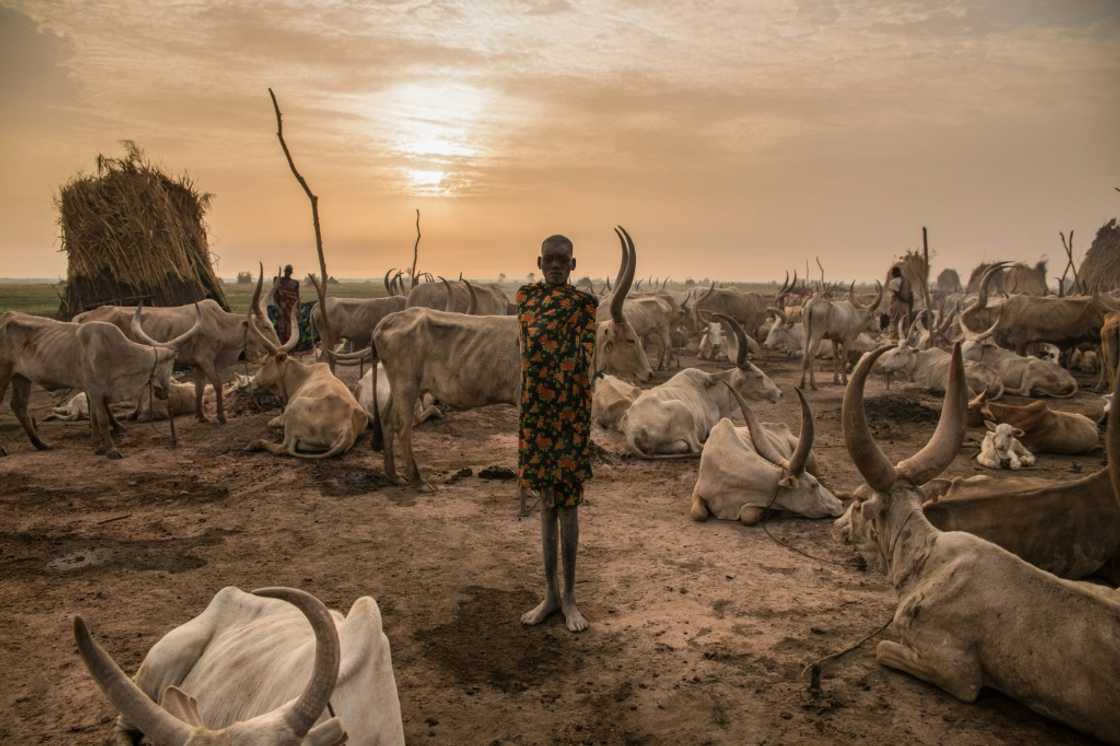Heat stress could threaten health of one billion cows

Source: AFP
PAY ATTENTION: Be the first to follow YEN.com.gh on Threads! Click here!
By the end of century, more than one billion cows worldwide could suffer from heat stress if global warming continues unabated, threatening their fertility, milk production and lives, according to research published on Thursday.
Nearly eight out of 10 cows across the planet are already experiencing excessively high body temperatures, spiked respiration rates, bowed heads and open-mouthed panting -- all symptoms associated with severe heat stress, the study said.
In tropical climates, 20 percent of cattle endure those symptoms year-round.
These numbers are projected to balloon if cattle farming continues to expand in the Amazon and Congo basins, where temperatures are on track to rise more quickly than the global average.
If emissions of climate-heating greenhouse gases continue to rise, the study predicts heat stress will become a year-round problem in Brazil, southern Africa, northern India, northern Australia and central America by 2100.
"A very important determinant of how many cows are exposed to this heat is decisions about land-use change," lead author Michelle North of University of KwaZulu-Natal in South Africa told AFP.
"Deforestation of tropical forests for livestock expansion is not a viable development future, because it makes climate change worse and will expose hundreds of millions more cattle to severe heat stress," she added.
The study, published in Environmental Research Letters, found that in a worst-case scenario, cattle husbandry will nearly double in Asia and Latin America and increase more than fourfold in Africa.
Losing livelihoods
If greenhouse gases are curbed sufficiently -- including by cutting the use of fossil fuels and by limiting the expansion of cattle farming -- the number of cows suffering could be reduced by half in Asia and by four-fifths in Africa.
Commercial ranchers stand to lose a lot of money from heat stress. It already costs as much as 1.7 billion dollars annually in the United States alone.
But these farmers usually have insurance, good relations with banks and the ability to draw on loans to help them recover from heat-related losses, said North.
When heat or other climate disasters hit small-scale farmers, however, "it can lead to farmers literally losing their livelihoods, even if the net losses may appear 'negligible'", she said.
North and her team found that global milk supplies would be reduced by 11 million tonnes per year by 2050 under a high greenhouse gas emission scenario.
If emissions are aggressively reduced, nearly half of that amount would still be lost, mostly in Asia and Africa, where milk supplies are already low.
In the near term, overheated cows can be helped by providing them with access to shade and fans, and feeding them earlier in the day.
New feature: Сheck out news that is picked for YOU ➡️ click on “Recommended for you” and enjoy!
Source: AFP



